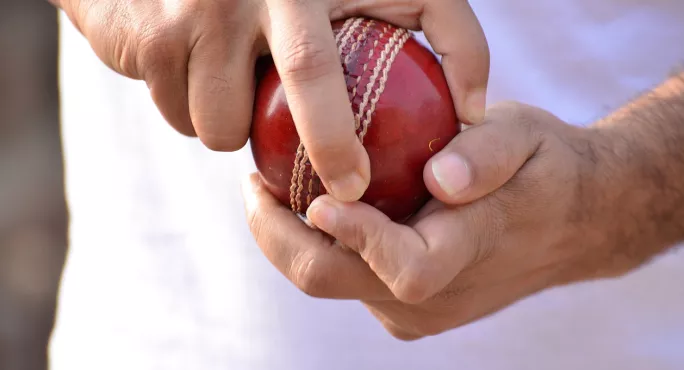GCSEs: ‘If only exam marking were more like cricket’
Share
GCSEs: ‘If only exam marking were more like cricket’
Last weekend, midway between A-level and GCSE results days, listening to the Ashes series on Test Match Special was not providing the requisite break from tension.
Sunday afternoon’s nail-biting finish to the second Test at Lord’s had everything from rain-stopping play to fantastic bowling by Jofra Archer and dogged resistance from the Australian substitute player Marnus Labuschagne.
The ball-by-ball analysis in Jonathan Agnew’s mellifluous tones always brings the game alive. No need to see it - and no chance of watching it on terrestrial TV anyway - thanks to the precise and detailed commentary.
It’s nearly enough to take my mind off the A-level post-results analysis - but not quite.
I wish I could say the same for the experience of receiving back A-level scripts. It’s long been a source of irritation, to put it mildly, that the exam board we use provides no evidence whatsoever of marking - only the total mark at the front of the script and individual marks at the bottom of each answer.
Exam appeals: a transparent process?
Cricket coverage, on the other hand, is completely transparent. Imagine if the only information available for each match were the score. Wouldn’t the players and the public feel cheated? Fortunately, the TMS team provides a valuable service in translating the events on the pitch and the umpiring decisions to a public with varying degrees of expertise on the game.
In exam marking, no such concession is made to teachers or students - who are, after all, key players in the preparation leading up to the exam and the performance on the page, and who have a much higher stake in the outcomes of the process.
When coursework moderation comes into play, schools (the customers who are paying for the exam board’s services) are required to ensure that their subject teachers provide a full marking commentary to each coursework submission. It’s a very time-consuming process when two or more teachers assessing their students’ performance have to provide copious detail to justify the final mark. In cricket, the audience isn’t required to contribute anything to the decision-making - much as some irate spectators and listeners would like to.
I digress only slightly before fielding the vital subject of appeals.
Review system
Even with schools now being able to challenge the marking itself, it’s rather difficult to show that a marking error has been made, when there is no evidence on an exam paper to support the school’s case.
Not so with Test cricket. Transparency is the name of the game. If a batter is given out but feels that the on-field umpire has made a wrong call, then they can appeal against that decision via the Decision Review System. The fielding side, too, has the right to challenge an umpiring decision if they feel they have got a batter out. Immediately, the third (off-field) umpire is consulted. Film of the actions of the players on the field and the trajectory of the ball can be shown and re-shown in slow motion to ensure that the correct decision has been made. The crowd can watch the replays, and the comments and questions of the off-field umpire can be heard by everyone.
Commentators on the game are aware that, under pressure, some teams and some players will voice their “normal” appeals (“Howzat?!”) excessively. And with fielders clustered around the batsman, it can at times seem that every ball is the subject of an appeal.
England fast bowler Stuart Broad is renowned for thinking he’s got the batsman out with every single delivery. But this tendency is generally regarded with amusement. Not so in the world of education, where schools are implicitly accused of overloading the system with appeals, simply to improve their league-table positions.
On the cricket field, unlike the education system, no one has to fork out money for a review. Imagine what would happen if the third umpire were to be paid decision-by-decision. Would contactless payment be in order? And would the captain have to carry his credit card on to the field? Would the umpire have an authorisation machine to hand, or would the coach carry out the transaction off-field? And how would the game proceed, if appeals in cricket took as long as they do in the exam system?
Ridiculous, of course. And further comparison only underlines how inefficient and bizarre the exams review/appeals system is.
Two strikes and you’re out
Could we perhaps adopt some aspects of the modus operandi of the cricket world? In cricket, the fielding and batting sides each have two “lives” per innings when it comes to decision review. If the review is successful, then the team keeps its two appeals to use later in the game. If, however, they make the wrong call and the umpire is shown to have been right, then they forfeit one appeal. Make another wrong appeal and they have no further chance to question the umpire’s decision in that innings.
How would it be if schools were given two “lives” to appeal? They would have to select their candidates’ scripts very carefully, prioritising the most obvious injustices over the more marginal ones. Get it wrong twice and there would be no further appeal. It’s radical, but it would stop over-appealing.
Sadly, in cricket some teams use up their appeals too early, as the replays of later wrong decisions demonstrate. Such could be the case with schools and their pupils, too. In the present system, we have no way of knowing how much injustice is done each year. But what cricket offers is a transparent system that schools can only dream of.
Meanwhile, the finale to the results season approaches on Thursday, and the pressure on teachers will finally be relieved. Unless they’re cricket fans, too…
Yvonne Williams is a head of English and drama in a school in the South of England




